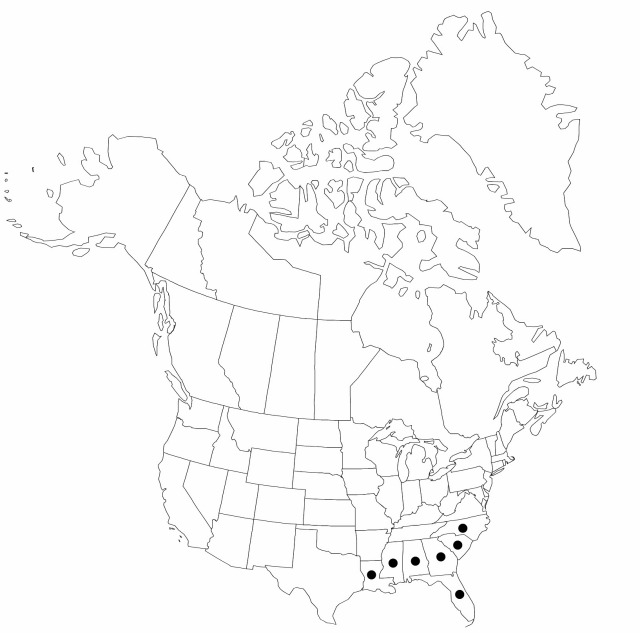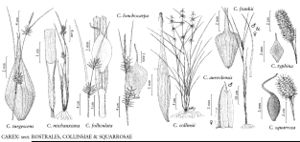Carex turgescens
Ann. Lyceum Nat. Hist. New York 3: 419. 1836.
Culms obtusely trigonous in cross section, 45–100(–160) cm, smooth. Leaves: ligules 3–12 mm, mostly longer than wide; blades yellowish or light green, widest leaves 1.8–6 mm wide, smooth or sometimes papillose, especially distally. Inflorescences (3–)5–30(–45) cm; proximal (1–)2–3 spikes pistillate, erect or the proximal spreading, aggregated or the proximal sometimes remote, ovoid to short-cylindric. Pistillate scales ovate, 1/3–2/3 as long as perigynia, apex acute to acuminate. Anthers 2.3–5.1 mm. Perigynia spreading or the proximal somewhat reflexed, yellowish green, 22–34-veined, inflated, ovate to narrowly ovate, 6.4–10.7 × 2–3.5 mm, 2.6–3.9 times as long as wide, apex contracted; beak 1.3–3 mm. Achenes 2.8–3.6 × 1.6–2.2 mm.
Phenology: Fruiting spring–early summer.
Habitat: Wet savannas, wet open forests, seeps, stream banks, often in shallow water, in sandy or peaty, acidic soils
Elevation: 0–200 m
Distribution

Ala., Fla., Ga., La., Miss., N.C., S.C.
Discussion
Selected References
None.
